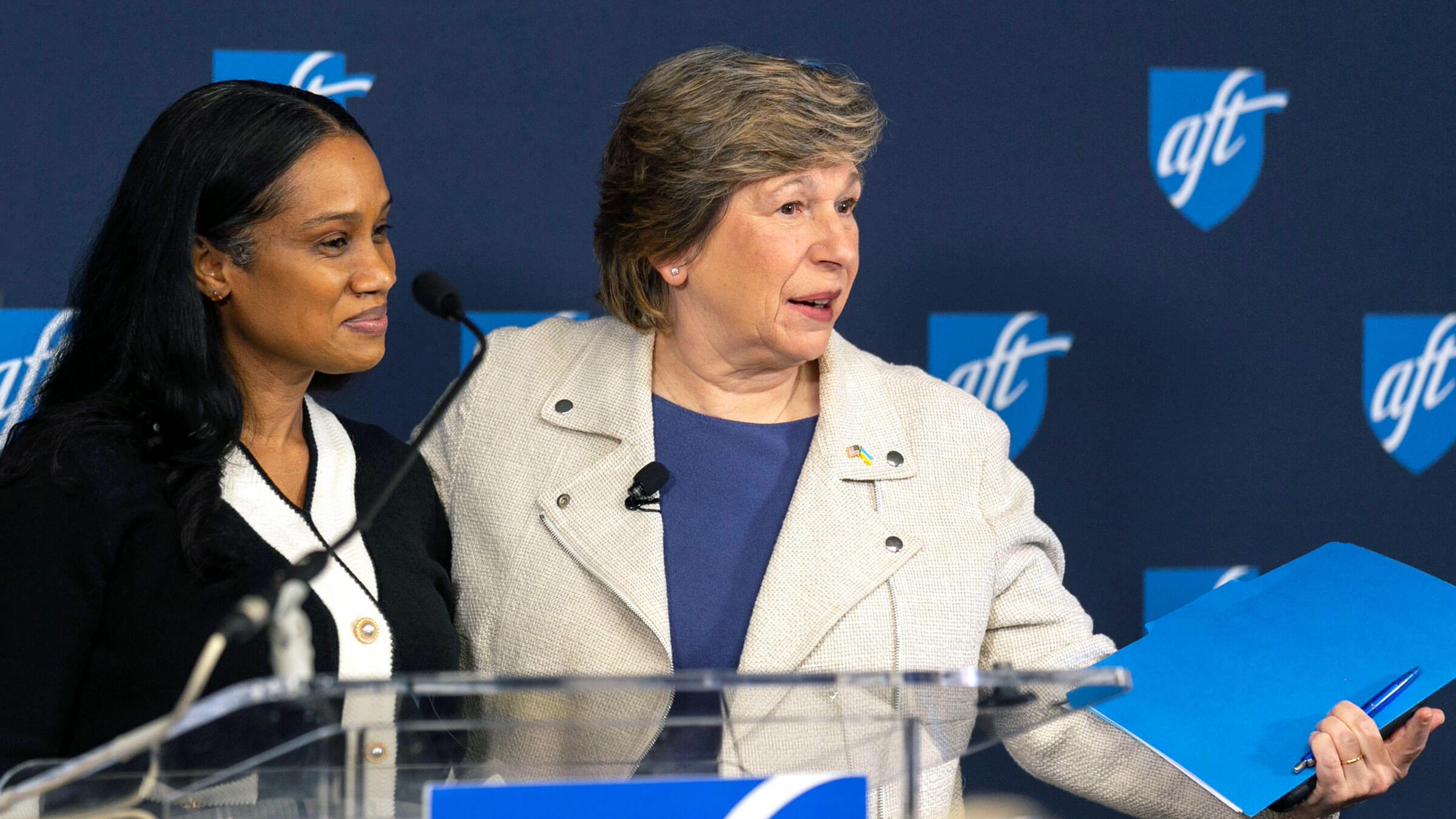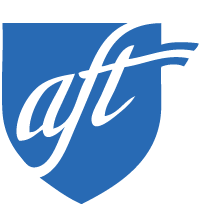In defense of public education
Our public schools shouldn’t be pawns for politicians’ ambitions or defunded and destroyed by ideologues.

Weingarten, right, with her former student Tamara Simpson, a New York City public school teacher, at the National Press Club on March 28.
Attacks on public education in America by extremists and culture-war peddling politicians have reached new heights (“lows” may be more apt), but they are not new. The difference today is that the attacks are intended not just to undermine public education but to destroy it.
From book bans and censorship of honest history to the removal and rejection of Black, LGBTQIA+ and minority students’ existence and experiences, MAGA lawmakers have used culture wars to divide communities and enact schemes that drain resources from public education.
The Betsy DeVos wing of the school privatization movement is methodically working its plan: Starve public schools of the funds they need to succeed, and then criticize them for their shortcomings. Erode trust in public schools by stoking fear and division, including attempting to pit parents against teachers. Replace them with private, religious, online and home schools.
These are all steps toward their end goal of destroying public education as we know it, atomizing and balkanizing education in America, bullying the most vulnerable among us and leaving the students who have the greatest needs with the most meager resources.
Poll after poll has shown that parents and voters don’t want politicized culture wars, and they want public schools strengthened, not abandoned.
I took on these attacks in a recent speech in defense of public education, outlining a four-part plan to help young people recover from learning loss and disconnection and to strengthen and transform public education: a vast expansion of community schools; experiential learning for all kids, including career and technical education; the revival and restoration of the teaching profession; and deepened partnerships with parents and the community.
Community schools wrap academics, food assistance, health and dental care, mental health services and much more around public schools to transform them into hubs that connect families and students with supports they need to learn and live. We are calling for 25,000 more community schools by 2025. This is an achievable goal. California is investing an additional $45 million for community schools, and President Joe Biden has doubled federal community schools funding.
Experiential learning is based on the idea that students learn—and become engaged with the world, new ideas and each other—by doing. In one approach, career and technical education, students learn everything from welding and auto repair to nursing, IT, graphic design, plumbing, life sciences and robotics.
Experiential learning embeds the things that make kids want to be in school, deeply engaging them in what they’re learning and letting them experience the camaraderie and responsibility of working together on a team. In the age of AI and chatGPT, this type of learning is crucial to being able to think and write, solve problems, apply knowledge and discern fact from fiction.
This formula of starting by high school and identifying school-to-career pathways—including community colleges, partnering with employers and ensuring the opportunities are paid—can be replicated everywhere.
The AFT is working closely on CTE and robust workforce strategy with the AFL-CIO; the U.S. departments of Commerce, Education and Labor; and Bloomberg Philanthropies. And we are reaching out to business groups large and small.
We are calling for ways to renew and revive the teaching profession by treating educators as the professionals they are, with appropriate pay; time to plan and prepare for classes, collaborate with colleagues, and participate in meaningful professional development; and the power to make day-to-day classroom decisions. This will help alleviate both teachers’ stress and critical school staffing shortages.
We are also working to deepen the connection between parents, educators, employers and the community.
The AFT’s Powerful Partnerships Institute has already made 27 grants to locals totaling more than $1.5 million. For example, Montana is engaging thousands of public education-supporting families and educators around a shared agenda. And New Haven, Conn., is working with educators, families and students on equitable school funding.
The AFT has launched a Freedom to Teach and Learn hotline, with the Campaign for Our Shared Future, for parents, educators and the public to report instances of political interference and censorship. The hotline—888-873-7227—will serve as a clearinghouse for reports of such interference.
This is our agenda. But this can’t just be the work of our union or of school staff and schools alone. This is the work of a great nation.
Our public schools are essential to the strength and survival of our democracy. They shouldn’t be pawns for politicians’ ambitions or defunded and destroyed by ideologues. We are at a crossroads: Fear and division, or hope and opportunity. A great nation does not fear people being educated. A great nation does not fear pluralism. A great nation chooses freedom, democracy, equality and opportunity. All of that starts in our public schools.














